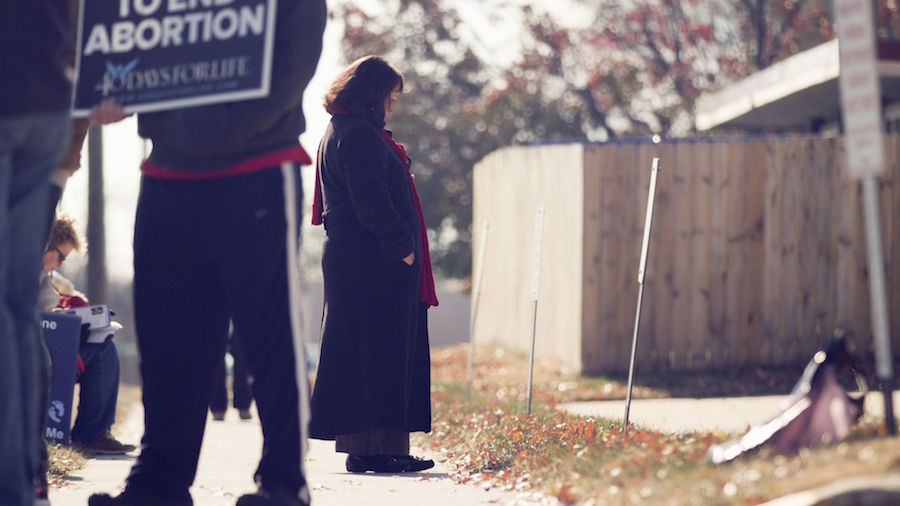“Abortion: Stories Women Tell” At no point during “Abortion: Stories Women Tell” are we told, point blank, what side it’s on. It’s pro-choice, obviously, but one quality shared by most pro-choice documentaries is that, unlike their pro-life counterparts, they’re not propaganda. Films like “Lake of Fire” and “After Tiller” don’t brandish their politics but set about exploring the tiny fissures between the cracks. It spends time with people on both sides: Those who’ve had or are having the procedure, those who work at clinics and those who stand outside of them, wielding placards of grisly images while bellowing Scripture. In all these films, it’s not about merely being even-handed; it’s about understanding a complicated issue while reminding viewers that no one, not least those choosing to have an abortion, take it lightly. What does this new doc have to contribute to the debate and its cinematic legacy? Frankly, not much. It lacks the intimacy of “After Tiller” and the personality of “Lake of Fire.”It exists, in part, as a reminder that the procedure is still under siege, that Planned Parenthood and independent clinics are dwindling in numbers, that certain states have made access to abortion all but impossible. It’s set mostly in Missouri, one of three states with the most restrictions on the procedure. Some of its dozen-or-so subjects, all refreshingly women, even have to travel hundreds of miles to a clinic in Illinois. Others have no other option: They can’t afford to birth, let alone raise, a child — or, in the case of a devoutly Christian couple, they already know their child will be born brain-dead. And adoption? It’s a broken system, to say nothing of the idea that some parents can’t fathom the idea of parting ways with the child they brought into the world. RELATED: A new book looks at films that have vanished from view As far as portraying the anti-abortion side, director Tracy Drox Tragos fares better than most. One of the film’s chief subjects is a pro-life advocate who’s far from the fire-and-brimstone types who spend every day howling outside clines. She speaks passionately about not wanting to live in a country that supports what she considers a form of genocide. The filmmakers may not agree with her, but they don’t tip their hand. Their film is all about listening without judgment. In fact, it might have been an even more vital movie had it focused on spending even more time with people and less time tackling the big issue. The irony of the film’s empathetic and ambitious structure is that we get too little time with any individual; as soon as we’ve gone next-level with one person, it’s off to the next subject. Documentarians tackling heady issues are understandably forced into a journalistic/essayistic mode, but that can also be a straitjacket. More filmmakers should take as inspiration Chantal Akerman’s 1999 doc “Sud.” It’s ostensibly about the murder of James Byrd Jr. by white supremacists in Jasper, Texas, but the way Akerman films and edits it, it’s more about watching the behavior of people. Subjects sit in chairs in what look like standard talking-heads segments, but Akerman includes the stuff most filmmakers edit out: the fidgeting in the chairs, the awkward silences in between sentences, the parts where they ramble a bit too much before getting back on message. They’re not reduced to sound pieces spouting intel; they become real people, and we come to understand something deeper about them that can’t be expressed in words. Vital as “Abortion: Stories Women Tell” is — and excellent as it often is at showing a hopelessly complex issue whose problems include, but are not limited to, being tangled up in bureaucratic red tape — it could stand to use the medium of film more to say something no book or article can. As such, it’s just another solid if unfailingly gentle documentary about a hot-button subject.
Director: Tracy Drox Tragos
Genre: Documentary
Rating: NR
3 (out of 5) Globes
‘Abortion: Stories Women Tell’ looks at all sides of the issue

HBO
Follow Matt Prigge on Twitter @mattprigge


















